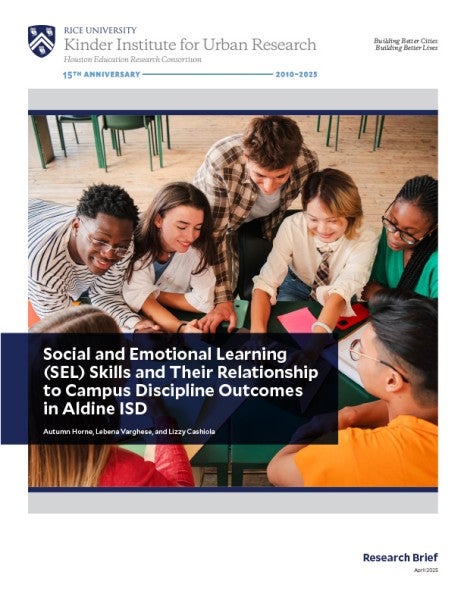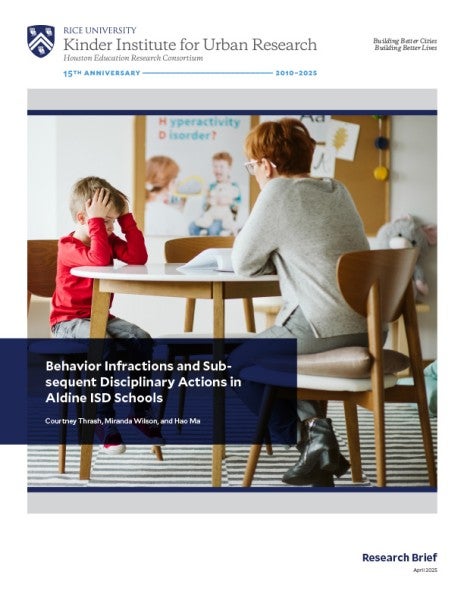In August 2019, Aldine ISD, an urban school district serving predominantly economically disadvantaged and minority students, launched a 5-year strategic plan that included social and emotional learning (SEL) as a key strategy for improving school culture. The district worked closely with the Kinder Institute’s Houston Education Research Consortium to explore how self-reported teacher and student SEL skills are linked with discipline outcomes across campuses. A follow-up study examined changes in school discipline rates from 2019-20 to 2022-23 and how discipline practices varied by race/ethnicity and special education status in 2022-23.
Key findings
- Middle and high school campuses had higher discipline and suspension rates than primary and elementary school campuses.
- Higher teacher and student SEL skills were related to lower discipline and suspension rates, specifically at higher grade levels.
- Overall, the number of documented behavior infractions decreased from 2019-20 to 2022-23. Discipline rates decreased for ninth-grade and high school students, while suspension rates decreased for all grade levels to varying degrees.
- Black students were overrepresented among disciplined students, especially in earlier grades.
- When considering behavior infraction severity, Black and Hispanic students often received similar disciplinary actions.
- Students receiving special education services were overrepresented among disciplined students in elementary schools only. When considering infraction severity, they often received lower disciplinary actions and fewer days of suspension.



